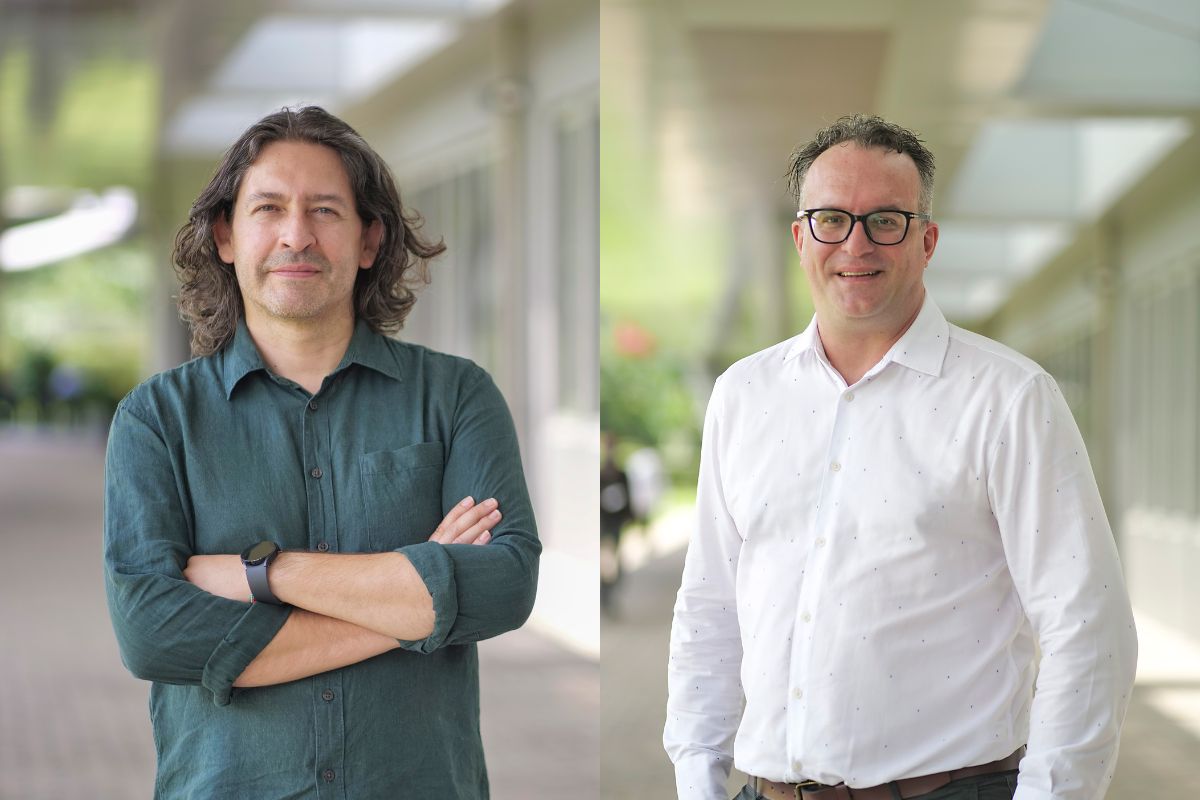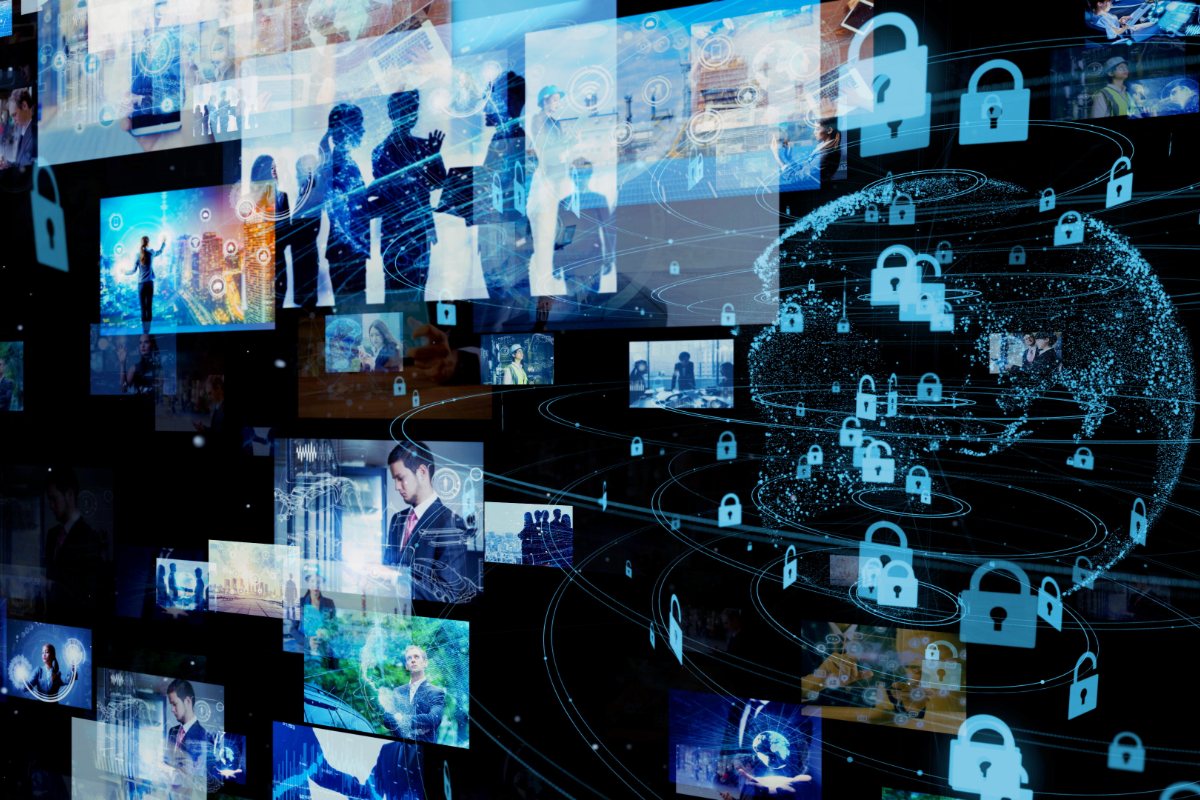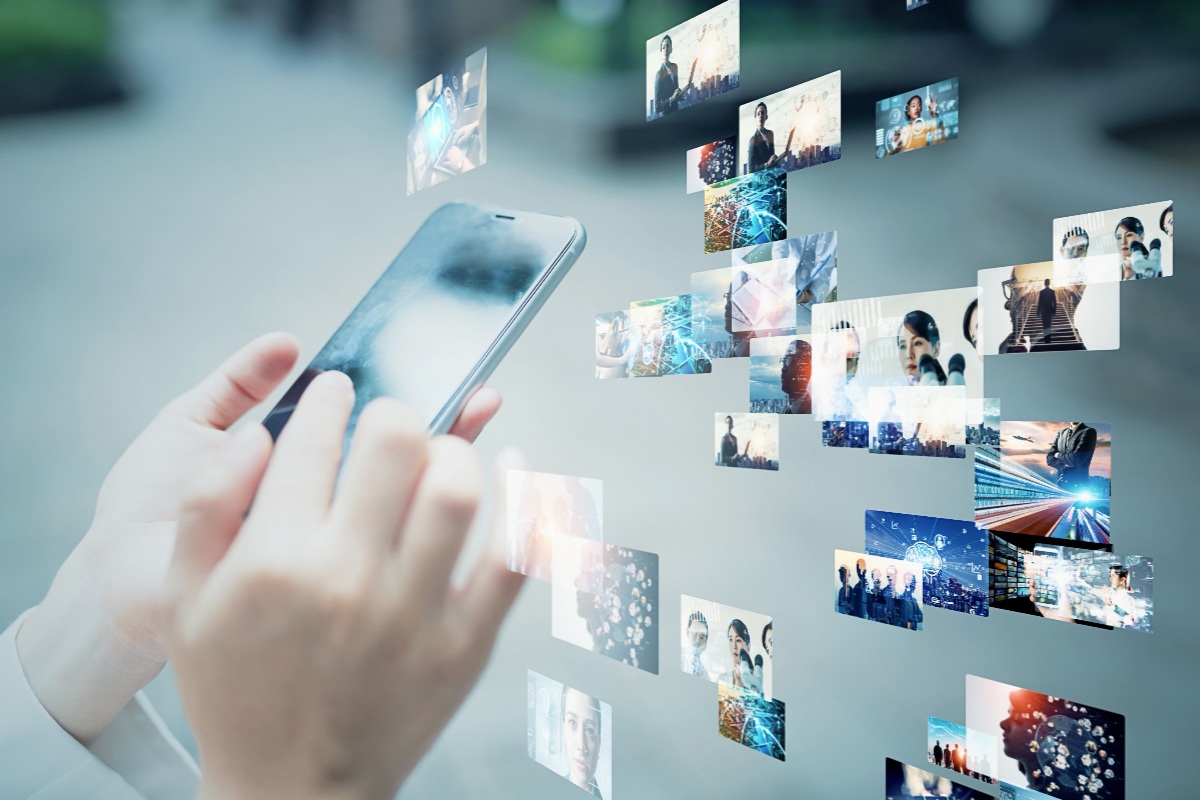
In June 2025, for the first time, Hollywood giants took legal action against an AI company. Disney and Universal accused Midjourney of generating unauthorised replicas of iconic characters such as Darth Vader, Elsa and the Minions without any licence or permission. The lawsuit describes Midjourney as a “bottomless pit of plagiarism”, alleging that its model was trained on copyrighted data scraped from the internet and functions like a “virtual vending machine” for derivative content.
 According to Ricardo Arce and Christian Berg (RMIT Vietnam), this lawsuit marks a turning point that compels the global creative sector to rethink how we define authorship, safeguard originality, and value human agency. (Photo: RMIT)
According to Ricardo Arce and Christian Berg (RMIT Vietnam), this lawsuit marks a turning point that compels the global creative sector to rethink how we define authorship, safeguard originality, and value human agency. (Photo: RMIT)
Since the case was filed, Midjourney has publicly defended its practices under the US “fair use” doctrine, arguing that restricting access to training data would harm innovation. In late June, the company rolled out a video-generation feature, prompting fresh criticism after users showed it could animate well-known characters despite built-in keyword restrictions.
Industry groups such as the Recording Industry Association of America (RIAA) have backed Disney and Universal, calling the lawsuit a necessary pushback against what they describe as uncompensated exploitation of creative works by AI companies.
Analysts warn that the outcome could reshape copyright norms for AI worldwide. A Disney win might force AI developers to license training data and rebuild models from scratch, while a loss could legitimise looser copyright practices.
Similar disputes are unfolding internationally: Getty Images is suing Stability AI in the United Kingdom over alleged misuse of its photo archive, while in Japan, policymakers are debating how anime studios can protect distinctive visual styles from AI imitation. The debate there has intensified after public backlash against AI-generated works mimicking Studio Ghibli’s hand-drawn aesthetic, raising concerns about cultural preservation and artistic integrity.
These developments highlight that the Midjourney case is part of a global reckoning, not an isolated US legal battle, and its ripple effects could reach markets such as Vietnam.
 The Disney-Midjourney lawsuit shows how the debate over AI and copyright is spreading worldwide, with potential implications for Vietnam. (Photo: metamorworks - stock.adobe.com)
The Disney-Midjourney lawsuit shows how the debate over AI and copyright is spreading worldwide, with potential implications for Vietnam. (Photo: metamorworks - stock.adobe.com)
According to two experts from RMIT University Vietnam, Ricardo Arce, Program Manager of the Bachelor of Design (Digital Media) and international animation professional, and Christian Berg, Associate Program Manager and PhD researcher in AI and photography, this lawsuit stands as a watershed moment, prompting a reassessment of how we define authorship, safeguard originality, and value human agency across creative industries.
“In animation and gaming, characters are not merely visual assets as they are brand identities and part of entire creative universes,” Arce explains. As an example, Midjourney can replicate Darth Vader almost perfectly but place him riding a motorcycle through modern-day Vietnam. “That is no longer just a creative expression; it is a disjointed mash-up that strip away not only an existing intellectual property (IP) but also meaning and culture.”
With more than 30 years of experience in the animation field, Arce believes that generative AI is pushing creative industries to reassess the entire IP ecosystem. “The issue is not simply plagiarism; it is the lack of tools and policies to manage it,” he says. “Especially in countries such as Vietnam, where most studios are small and under-resourced, creators often have no legal recourse when their work or style is copied by AI.”
Christian Berg, who is currently completing a practice-based PhD on AI in expanded photography, points out that most major AI models today, from Midjourney to DALL·E, were trained on massive datasets scraped indiscriminately from the internet, often without consent from original creators. “This is the grey area that existing copyright laws have not caught up with,” he says. “These laws were never designed to deal with machine learning trained on billions of copyrighted works.”
Even more concerning, Berg adds, is the potential legal risk for AI users. “We do not know the outcome of the lawsuit yet, but until there is legal clarity, using tools like Midjourney for commercial purposes is incredibly risky.”
 Vietnam currently lacks a clear legal framework for AI-generated content, creating an urgent need for interim guidelines, protection mechanisms, and stronger user awareness. (Photo: metamorworks - stock.adobe.com)
Vietnam currently lacks a clear legal framework for AI-generated content, creating an urgent need for interim guidelines, protection mechanisms, and stronger user awareness. (Photo: metamorworks - stock.adobe.com)
Both experts agree that Vietnam currently lacks the legal infrastructure to adequately address the intersection of AI and intellectual property.
The amended 2022 Intellectual Property Law provides no guidance on AI-generated content or training data rights. The recently enacted 2025 Digital Technology Industry Law marks the country’s first attempt to establish a broader legal framework for AI development and governance. However, while it sets out principles for innovation, testing, and management of AI systems, it does not directly regulate copyright or ownership of AI-generated works.
Meanwhile, national AI and digital strategies mention concepts such as “AI ethics” and “data governance,” but these remain broad policy directions without binding legal force.
Practical steps for Vietnam could include issuing interim guidelines for AI use in creative industries, creating publicly accessible “AI-safe” datasets licensed for training, establishing an opt-out mechanism for creators, and investing in legal training for IP specialists to handle AI-related disputes.
“At the same time, we need policy dialogues that bring together the government, academic institutions and the creative sector. Professional associations and universities can play a key role as intermediaries,” Arce suggests.
Berg emphasises the importance of responsible media literacy. “Users need to understand what they are engaging with and be aware of the risks they take when they partner with AI tools. Consuming AI-generated content is itself an action with consequences and it requires ethical awareness.”
Neither expert sees AI as the enemy of creativity. “AI is a tool,” Arce concludes. “The real question is how we use it, with what understanding, and within what ethical and legal boundaries.”
As the line between inspiration and imitation grows increasingly blurred, the Midjourney lawsuit serves as a reminder that the global creative industry is entering a moment of reckoning that demands a redefinition of fundamental values: ownership, originality and recognition of human effort in the age of artificial intelligence.
Story: Quan Dinh H.
Masthead image: Harsha - stock.adobe.com
Thumbnail image: Dee karen - stock.adobe.com
RMIT University Vietnam students started 2026 strong with top honours at major creative competitions in Singapore and the UK, once again spotlighting the strength of Vietnamese creativity on the world stage.
The explosive growth of affiliate marketing across social media and e-commerce platforms is exposing significant legal and ethical risks, according to experts from RMIT Vietnam.
Amid the growing global demand for healing tourism, Vietnam is presented with a historic opportunity to position its national image and leverage soft power through wellness tourism.
From viral AI-generated remixes getting millions of views on TikTok to intensifying copyright battles, the music industry stands at a crossroads: Are we witnessing the dawn of a new creative era, or the twilight of human authenticity?